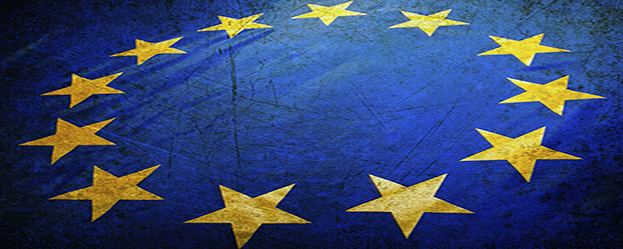This website uses cookies so that we can provide you with the best user experience possible. Cookie information is stored in your browser and performs functions such as recognising you when you return to our website and helping our team to understand which sections of the website you find most interesting and useful.
Business News Digital Legal Top Stories
European Parliament passes the Copyright Directive
By Chris Cooke | Published on Wednesday 27 March 2019

So the European Parliament only went and bloody passed the European Copyright Directive. Complete with safe harbour reforming article thirteen. As YouTube warned, this has now killed the internet. Which is why today’s CMU Daily is being delivered to you carved on a piece of slate. But don’t worry, next week we’ll be upgrading to tablets of gold. Because, with the directive passed, music has been saved and the value gap closed, meaning all makers of music will be super flush with cash by next Tuesday. Good news everybody!
These reforms to copyright law across the European Union have been so long in development, it’s hard to remember there even being a time before article thirteen, which seeks to increase the liabilities of user-upload platforms like YouTube so to strengthen the negotiating hand of music companies when agreeing licensing deals with such sites.
Google, of course, argued that the new liabilities would force it to dramatically alter the YouTube business to the detriment of grass roots creators. The music industry countered that that was bollocks. It remains to be seen what now happens, though arguably the very final draft of article thirteen (actually article seventeen in that very final draft) included enough wiggle room to reduce the actual impact on the YouTube platform.
And, of course, this being a directive, each EU country still needs to amend their individual copyright systems to comply with the reforms contained within it.
They have two years to complete that task. That provides another opportunity for campaigners on both sides to beef up or water down the new liabilities. So expect another round of lobbying and shouting in the year ahead. And, of course, there’s also the question of what approach Brexity Britain chooses to take.
Some of that lobbying and shouting will likely divide the music community, because while the music industry was more or less united on safe harbour reform, some other articles in the directive seek to increase the rights of artists and songwriters over the record labels and music publishers they work with. It will be equally interesting to see how those measures are implemented and what effect they do or do not have in real terms.
But in the short term, the music industry was jubilant yesterday that MEPs had backed the directive despite the high profile hyperbolic Google-led campaign against it.
Although the EU Council still needs to sign off on the final draft, this was seen as the last real hurdle to cross in order to get the reforms passed before the European Parliament winds down for the EU elections in May. Music industry groups will now focus on how the directive is implemented country by country, while also urging law-makers outside the EU to consider similar safe harbour reforms.
Meanwhile, outside the music industry echo chamber, those in the tech community ramped up the doom and gloom narrative, insisting EU law-makers had made a terrible mistake that will have terrible consequences for how we all use the internet. They almost certainly haven’t and it almost certainly won’t. Though it’s also not certain that the music community will see quite the tangible benefits some are expecting from all this safe harbour reform.
But we will see! Meanwhile, in case you tuned out on all this two years ago, this Setlist special from the start of the year explains the whole music industry v YouTube saga in some detail.





